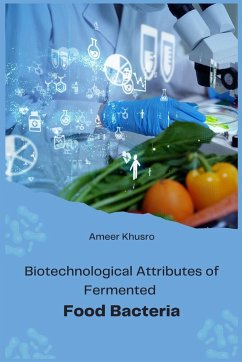Fermented foods are an integral part of many cultures, including the state of Tamil Nadu in India. Coagulase-negative staphylococci (CNS) are a common group of bacteria found in traditional fermented foods in Tamil Nadu. These bacteria play an important role in the fermentation process and are also known to have various biotechnological attributes. In recent years, there has been an increasing interest in the study of the biotechnological attributes of CNS isolated from traditional fermented foods, due to their potential use in the food and biotechnology industries. The biotechnological attributes of fermented food bacteria are of great interest to researchers in the field of microbiology and food technology. The study of these attributes involves understanding the biochemical and physiological properties of bacteria, which can be used to develop new food products or to improve existing ones. Bioprocessing and fermentation are the key areas of focus in this research, which involves identifying the microbial diversity and metabolic activity of CNS. Lactic acid bacteria (LAB) are a common group of bacteria found in fermented foods, including those of Tamil Nadu. LAB are known to have many health benefits and are used as starter cultures in the production of fermented foods such as yogurt, cheese, and pickles. They also have biotechnological attributes, such as the ability to produce bioactive compounds, antimicrobial properties, and enzymes that can improve the nutritional value of food. In addition to LAB, CNS also have many biotechnological attributes that make them valuable in the food and biotechnology industries. They are known to produce enzymes that can be used in biocatalysis, biosynthesis, and enzyme production. They also have antimicrobial properties, which can be useful in food preservation and safety. The use of CNS in food production and biotechnology is of great interest due to their potential to produce functional foods with health benefits. The biotechnological attributes of CNS have been studied extensively, and research has shown that they have the potential to produce bioactive compounds such as bacteriocins, which have antimicrobial properties and can improve the health benefits of food. Overall, the biotechnological attributes of fermented food bacteria, particularly CNS, are of great interest in the fields of microbiology and food technology. The study of these attributes has the potential to lead to the development of new food products with improved nutritional value, health benefits, and safety. Further research is needed to explore the potential of CNS in biotechnology and to understand the biochemical and physiological properties that make them valuable in these industries.







